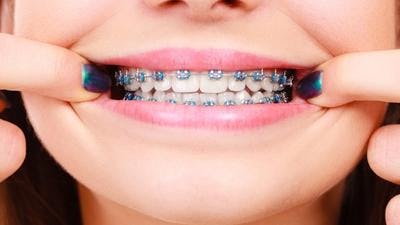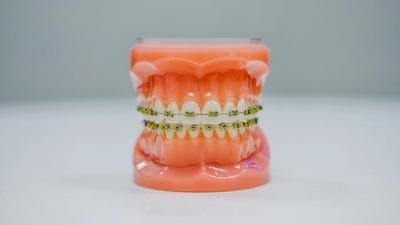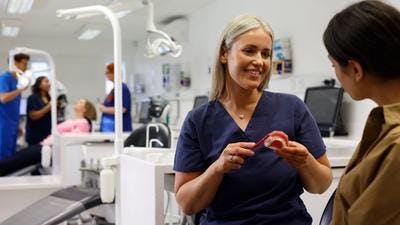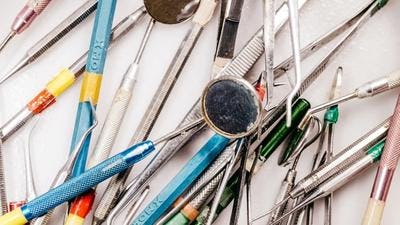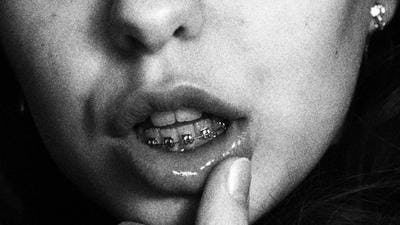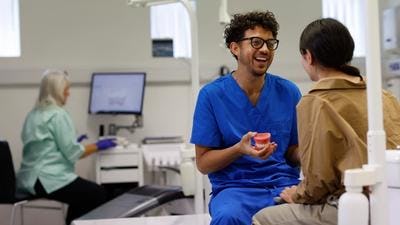Ultimate Orthodontics & Braces FAQ

Answers to Your Most Pressing Orthodontics and Braces Questions
We understand that orthodontics can raise a multitude of questions, from the basics of braces to more complex concerns about orthodontic procedures and care. This article is designed to provide you with the answers you need, all in one place.
Orthodontics is a branch of dentistry that focuses on the alignment and positioning of teeth and jaws. Whether you're a teenager, an adult, or a parent researching for your child, understanding the ins and outs of orthodontics is essential for making informed decisions about your oral health. From the types of braces available to tips for maintaining your oral hygiene during treatment, we've got it all covered.
Let's get started!
—
What are the different types of braces available?
There are several types of braces to choose from. Traditional metal braces are the most common, consisting of metal brackets and wires. Ceramic braces are similar but use clear or tooth-coloured materials, making them less noticeable. Lingual braces are fixed on the back of your teeth, offering an almost invisible option. Invisalign, on the other hand, is a popular choice for removable, clear aligners that gradually shift teeth. Your orthodontist can help you decide which type is best suited to your specific needs and preferences.
How long does orthodontic treatment typically take?
The duration of orthodontic treatment varies depending on the complexity of your case. On average, it can last anywhere from 18 months to 2 years, but some cases may be shorter, while others could extend beyond this timeframe. Consistency in following your orthodontist's instructions and attending regular check-ups plays a crucial role in ensuring your treatment progresses as planned.
Are braces painful, and what can I do to alleviate discomfort?
Braces can cause some discomfort, especially after adjustments. This is usually a sign that your teeth are moving as planned. Over-the-counter pain relievers can help alleviate the discomfort. Orthodontic wax can be applied to any irritating brackets or wires. Eating soft foods and maintaining good oral hygiene can also reduce discomfort. Remember, the discomfort is temporary and is a sign that your treatment is working.
Can I still play sports or musical instruments with braces?
Yes, you can continue to play sports and musical instruments with braces. However, it's important to wear a mouthguard when playing contact sports to protect your braces and mouth. For musicians, there may be an adjustment period, but you'll adapt to playing with braces over time. Consult your orthodontist for guidance on protective gear and any specific concerns related to your activities.
How do I maintain proper oral hygiene with braces?
Maintaining good oral hygiene is crucial during orthodontic treatment. Brush your teeth after every meal and floss daily using floss threaders or a water flosser. Consider an interdental brush to clean around brackets and wires. Regular dental check-ups and cleanings are essential. Your orthodontist can provide you with specific instructions for maintaining your oral health throughout your treatment to prevent issues like cavities and gum disease.
Who is eligible for NHS braces?
In the United Kingdom, eligibility for NHS (National Health Service) braces is primarily determined based on specific clinical criteria. The NHS provides orthodontic treatment to individuals who meet certain requirements, which typically include:
- Age: NHS orthodontic treatment is often prioritised for children and teenagers under the age of 18.
- Clinical Need: Eligibility is primarily based on the clinical need for orthodontic treatment. This includes cases where there are significant orthodontic issues that could affect a person's oral health or function.
- Severity: The severity of the orthodontic problem is a key factor. The condition should be assessed as severe enough to warrant treatment under the NHS.
- Availability: Availability of NHS orthodontic services can vary by region, and access may be limited in some areas.
It's important to note that the criteria for NHS orthodontic treatment can vary by region and are subject to change. To determine your eligibility for NHS braces, it's recommended to contact your normal NHS dentist service. They can provide specific information on eligibility criteria and the availability of NHS-funded orthodontic treatment in your area. Keep in mind that there may be waiting lists for NHS orthodontic care, and private orthodontic options are also available for those who do not meet the NHS criteria or prefer to expedite their treatment.
Can adults get braces, or is it just for children and teenagers?
Adults can absolutely get braces. Orthodontic treatment is not limited to children and teenagers. In fact, more adults are seeking orthodontic care to improve their smiles and address dental issues. The options available, such as clear aligners and less visible braces, have made orthodontics a viable choice for people of all ages.
What should I do if a bracket or wire becomes loose or breaks?
If a bracket or wire becomes loose or breaks, it's important to contact your orthodontist as soon as possible. They will provide guidance on whether the issue can be resolved at home or if you need to schedule an appointment for repairs to your broken braces. In the meantime, orthodontic wax can be used to prevent irritation, and avoid eating hard or sticky foods to minimise further damage.
Are there dietary restrictions when wearing braces?
While there are no strict dietary restrictions with braces, it's advisable to avoid hard, crunchy, and sticky foods that can damage your braces or get stuck in them. These include items like popcorn, nuts, chewy candy, and hard pretzels. Opt for softer foods and cut fruits and vegetables into smaller, manageable pieces to make eating more comfortable.
What is the retention phase, and why is it important after braces are removed?
The retention phase is a crucial part of orthodontic treatment. After your braces are removed, your orthodontist will provide you with retainers to wear. Retainers help maintain the new position of your teeth and prevent them from shifting back. It's essential to follow your orthodontist's instructions for retainer use to ensure that your beautiful smile remains stable.
Can orthodontic treatment improve more than just the appearance of my smile?
Yes, orthodontic treatment can have various benefits beyond aesthetics. It can improve your bite, which can alleviate issues like jaw pain, headaches, and difficulty chewing. Orthodontics can also enhance overall oral health by making it easier to clean your teeth and reducing the risk of dental problems. Additionally, a straighter smile can boost self-confidence and enhance your quality of life.
Can I still get orthodontic treatment if I have dental issues like cavities or gum disease?
It's essential to address any existing dental issues before beginning orthodontic treatment. Your orthodontist will work closely with your general dentist to ensure your teeth are in good health before starting. Dental problems like cavities or gum disease should be treated and resolved to minimise complications during orthodontic care.
Are there any age restrictions for Invisalign or clear aligner treatment?
Invisalign and clear aligners are suitable for both teenagers and adults. There's no strict age limit for this type of treatment. Invisalign is an excellent choice for those who prefer a more discreet and removable orthodontic option. Your orthodontist will assess your specific case to determine if clear aligners are a good fit for you.
How often will I visit my orthodontist for adjustments during treatment?
The frequency of orthodontic visits for adjustments can vary but is typically every 4 to 6 weeks. Your orthodontist will create a treatment plan tailored to your needs and schedule appointments accordingly. Regular check-ups are essential to monitor progress and make necessary adjustments to your braces or aligners.
Will orthodontic treatment affect my speech or pronunciation?
Initially, you may experience minor changes in your speech or pronunciation as you adjust to braces or aligners. This is usually temporary, and most people adapt within a short period. Practicing speaking and reading out loud can help you adjust more quickly, and any speech changes are generally minor and hardly noticeable to others.
Who can provide orthodontic treatments?
Orthodontic treatments can be provided by dentists and orthodontists. Dentists can provide some orthodontic services, such as minor teeth alignment, but for comprehensive orthodontic treatment, it's highly recommended to seek the expertise of an orthodontic specialist. Often dentists go on short courses to update their skills on orthodontics, but this is very different to the years of training it takes to become a specialist.
Whats the difference between a dentist providing orthodontics and a Specialist Orthodontist?
While dentists can provide some orthodontic services, such as minor teeth alignment, but for comprehensive orthodontic treatment, it's highly recommended to seek the expertise of an orthodontic specialist. Here's why:
- Specialised Training: Orthodontists are dental specialists who undergo several years of additional training after dental school, focusing exclusively on orthodontics. This specialised education equips them with in-depth knowledge and experience in diagnosing and treating complex orthodontic issues.
- Comprehensive Assessment: Orthodontists are skilled at evaluating not just the alignment of teeth but also the positioning of the jaws. They can identify underlying issues that may not be apparent to a general dentist.
- Tailored Treatment: Orthodontists create personalised treatment plans to address your specific orthodontic needs. They offer a wide range of treatment options, including braces and clear aligners, and can recommend the most suitable approach for your case.
- Ongoing Monitoring: Orthodontists closely monitor your progress throughout the treatment, making adjustments as needed to ensure the best possible outcome. They have the expertise to handle any challenges or complications that may arise during treatment.
- Better Results: Orthodontic treatment is a significant investment, and the expertise of an orthodontist can lead to more efficient and effective results, potentially reducing treatment time and improving the final outcome.
How can I choose the right orthodontist for my treatment?
Selecting the right orthodontist is crucial for a successful treatment experience. Start by seeking recommendations from your dentist or friends and family. Research prospective orthodontists, consider their credentials and experience, and schedule a consultation to discuss your needs and expectations. A good orthodontist will take the time to address your concerns, explain your treatment options, and make you feel comfortable with the process.


